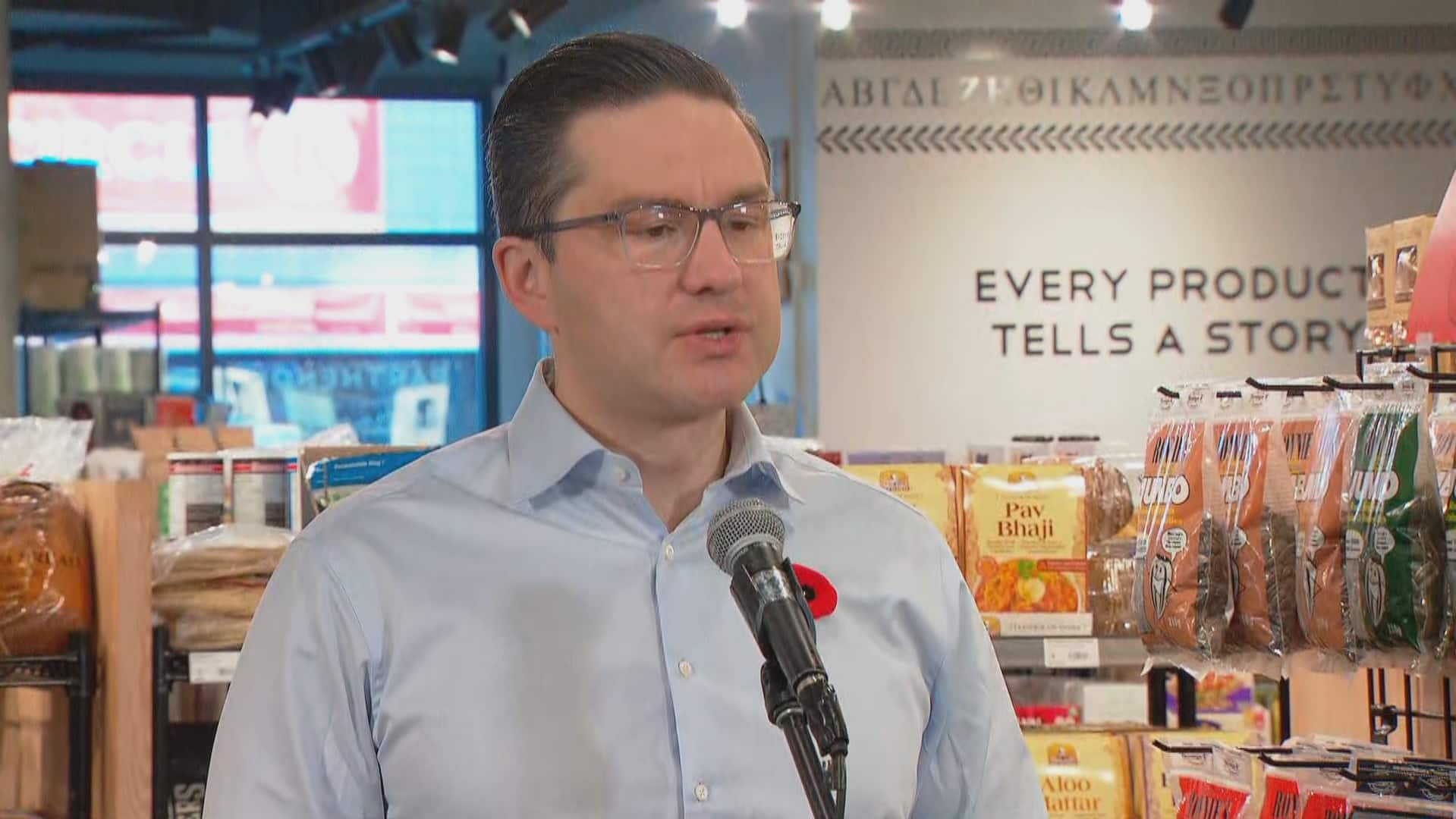
Reacting to claims that China interfered in the 2019 federal election, Conservative Leader Pierre Poilievre said Wednesday that Prime Minister Justin Trudeau has failed to protect Canada’s democracy and Conservative MPs are pushing for a parliamentary committee investigation.
Poilievre made the remarks in Vancouver while Foreign Affairs Minister Mélanie Joly was giving a speech in Toronto about the release of the Liberal government’s forthcoming Indo-Pacific strategy.
“It’s very troubling that the prime minister has known about allegations about foreign interference in Canadian elections since last January and he hasn’t taken any action,” Poilievre said.
“No foreign government should have any influence over our elections or our future. That should reside in the hands of Canadians. And so far, that has not been the case with the prime minister. He has failed to protect our democracy.”
Poilievre told reporters that Trudeau needs to explain what he knew about Chinese interference in Canadian elections and how he responded to the threat.
The Conservative leader was citing a Global News story that said Canadian intelligence officials alerted Trudeau in January that China had interfered in the 2019 federal election.
Quoting unnamed sources, the Global News story said the Canadian Security Intelligence Service (CSIS) sent briefing notes to Trudeau and several cabinet ministers alleging China covertly funded 11 candidates in the 2019 federal election.
The briefing notes, which did not identify the candidates, also said that China worked to get its agents employed in the offices of members of Parliament.
Watch: Poilievre says Trudeau ‘has failed to protect our democracy’
Conservative Leader Pierre Poilievre says he’s ‘troubled’ by Prime Minister Justin Trudeau’s response to claims that China interfered in past Canadian elections.
“We need to have a government that stands up for human rights and for freedoms and defends Canada’s interests in an increasingly dangerous world,” Poilievre said.
He said Conservative MPs on the procedure and House affairs committee are confident they have the votes required to make a committee study happen.
Poilievre said he wants the probe to look at “what the prime minister knew, what he is going to do about it and how we’re going to protect our democracy from foreign interference.”
‘We need to do more,’ Joly said
Speaking Wednesday at an event hosted by the Munk School of Global Affairs and Public Policy and the Asia-Pacific Foundation, Joly described China as “an increasingly disruptive global power.”
Joly was at the event to provide an outline of a forthcoming Indo-Pacific strategy for Canada — a strategy that will also guide Canada’s relationship with China. Joly said the fully-funded strategy will be launched within a month but didn’t give a date.
When asked about foreign interference in Canadian elections, Joly said the Liberal government “won’t let any foreign actor meddle in our democracy, period.”
“For the past two elections we had a committee that was working on these very issues, and also we strengthened our processes, but I think that we need to do more,” Joly said.
Opposing Chinese aggression
Joly said that although China’s growing power is reshaping many countries’ approaches to foreign policy, Canada must know when to stand strong and when to work with China.
“Canada will never apologize for its national interests and we won’t be sorry for seeking to uphold the global rules that govern international trade, international human rights or navigation … rights,” she said.
“We will challenge China when we ought to, and we will cooperate with China when we must.”
Joly said Canada’s approach to China would include opposing China’s approach to Hong Kong by supporting freedom of speech and freedom of the press in the Special Administrative Region, and opposing any Chinese threats against Taiwan — which China claims is part of its territory.
The Uyghur minority
Joly also addressed the situation in China’s Xinjiang region. Several governments and human rights groups have described China’s treatment of the Uyghur minority in the region as a crime against humanity or genocide.
Joly said Canada “will continue to engage at the highest levels regarding the human rights situation in the Xinjiang region in China, where credible accounts of human rights abuse and crimes against humanity are well-documented.”
Members of Parliament voted last year to label China’s persecution of the Uyghurs a genocide, but then-foreign affairs minister Marc Garneau abstained on behalf of the government.
A number of recent issues have undermined Canada-China relations. China detained Michael Kovrig and Michael Spavor in 2018 before releasing them last year. Canada’s government earlier this year banned Huawei, a Chinese telecommunications company, from working on Canada’s 5G network, citing security concerns.
